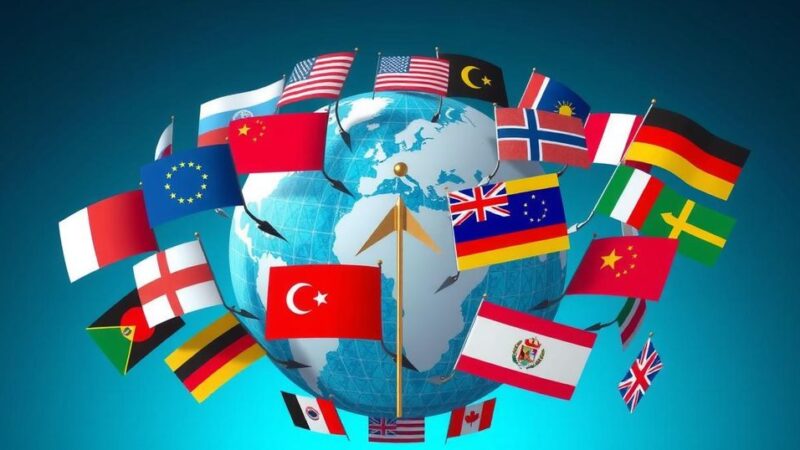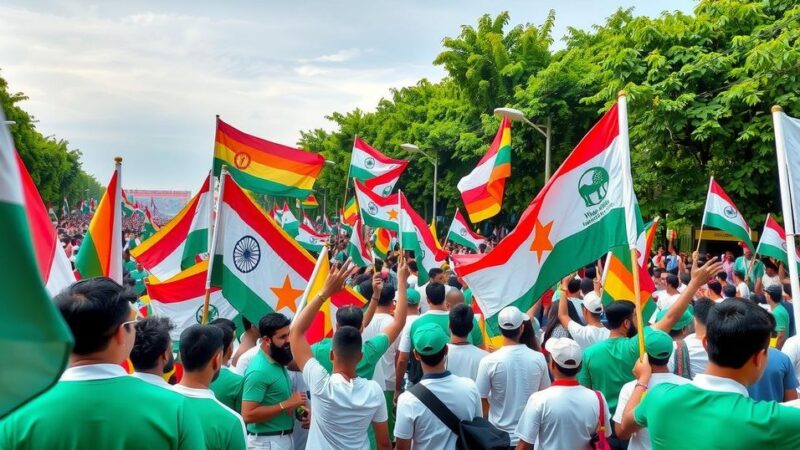U.S. Secretary of State Marco Rubio criticized Cuba, Nicaragua, and Venezuela for their role in the migration crisis during his Latin American tour. He labeled these regimes as “enemies of humanity,” attributing the migration situation to their ineffective governance. In response, Cuban President Diaz-Canel linked migration to the U.S. trade embargo, while El Salvador’s president offered to jail U.S. convicts in a mega-prison for gang members.
On Tuesday, U.S. Secretary of State Marco Rubio criticized the authoritarian regimes of Cuba, Nicaragua, and Venezuela, labeling them as “enemies of humanity” responsible for a regional migration crisis. During his visit to Costa Rica, Rubio emphasized that if not for these governments, the current migration issues in the hemisphere would not exist. Rubio, whose family emigrated from Cuba, described the ineffective systems of these countries as catalysts for the migration dilemma.
Rubio specifically condemned Nicaragua, where recent constitutional changes have consolidated power under President Daniel Ortega and his wife, Rosario Murillo. He remarked on the transformation of the nation into a family dynasty that suppresses dissent, including opposition from the Catholic Church. He observed that many Nicaraguans are fleeing due to similar reasons as individuals leaving Cuba and Venezuela.
In response, Cuban President Miguel Diaz-Canel accused U.S. politicians of “shamelessness” and maintained that Cuba’s migration crisis is directly linked to the over sixty-year U.S. trade embargo. He articulated that the tightening of the embargo correlates with the increased outflow of Cubans seeking better living conditions abroad. Additionally, Diaz-Canel accused the U.S. of promoting “neofascism,” thereby endangering humanity.
Rubio’s Latin American tour continued with a trip to Guatemala following visits to Panama and El Salvador. In a notable exchange, El Salvador’s Nayib Bukele proposed the incarceration of U.S. citizen convicts in a mega-prison specifically for gang members, which was constructed two years prior. Rubio expressed gratitude for Bukele’s cooperation, which included the acceptance of deported gang members from other Latin American nations, such as Venezuela.
The migration crisis in Latin America has escalated, largely attributed to socio-political turmoil and economic instability in several countries, including Cuba, Nicaragua, and Venezuela. Authoritarian governance has contributed to widespread dissatisfaction and mass emigration, while U.S. foreign policy, particularly the trade embargo against Cuba, has further impacted migration patterns. Rubio’s remarks reflect a perspective that places responsibility for migration on the regimes themselves, arguing for a direct connection between their governance and the exodus of their citizens.
In conclusion, Marco Rubio’s critiques highlight the perceived role of authoritarian governments in exacerbating the migration crisis in the region. His comments have prompted responses from affected leaders, underscoring the complex interplay between governance, U.S. foreign policy, and regional migration dynamics. The situation necessitates further evaluation of not only the political climates in these countries but also the implications of U.S. policies therein.
Original Source: www.hindustantimes.com






